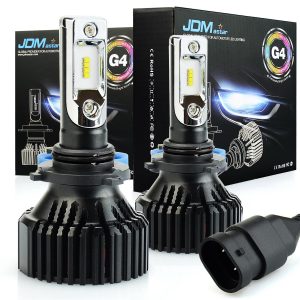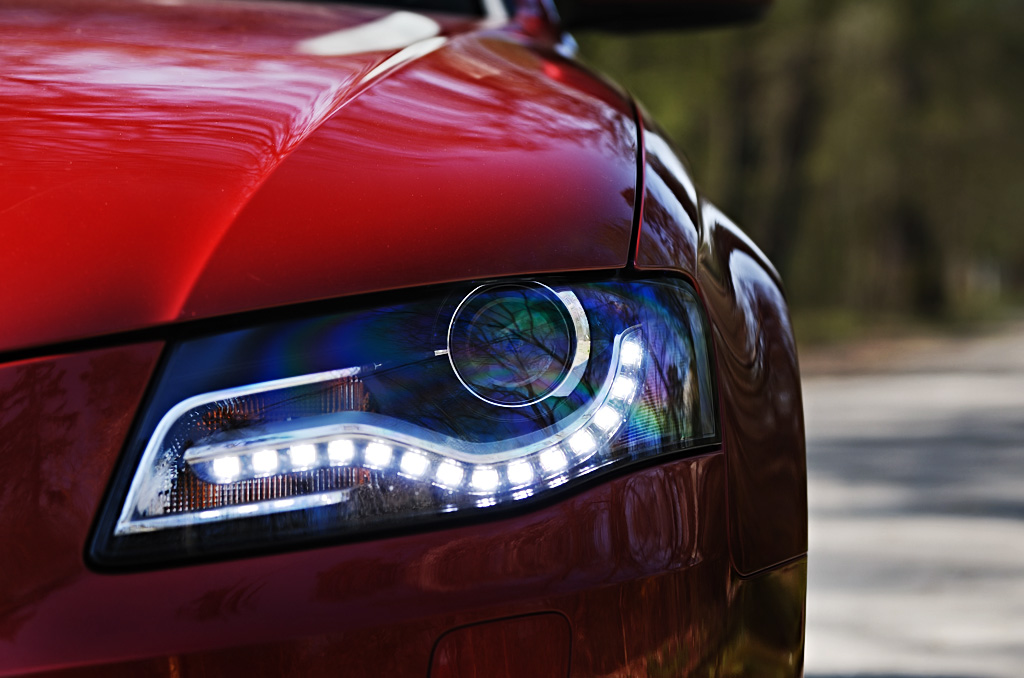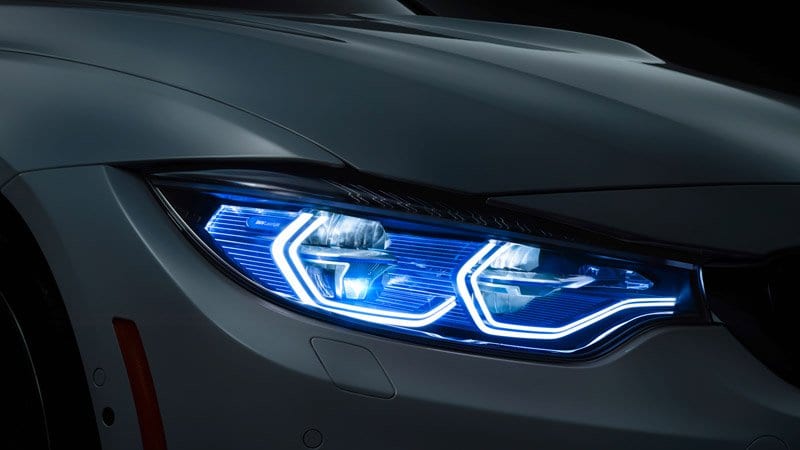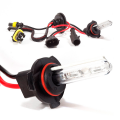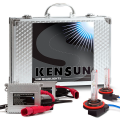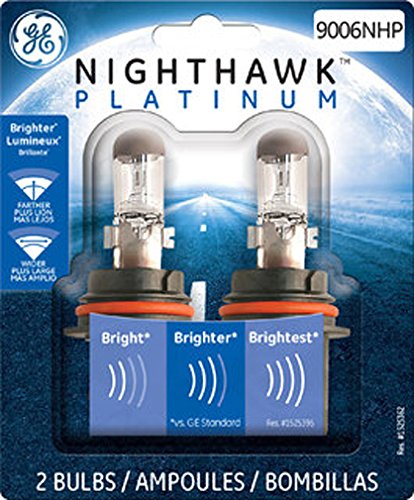LED vs. Halogen vs. Xenon – Which Is Best?
Since the invention of the light bulb in 1879 and then an invention of Ford Model T in 1908 all next cars had headlights in front.. In the course of last 100 years, the evolution of headlamps created different types of lightning. And we are here to decide which one is the best.
Nowadays there are 3 main types of headlights basis: xenon, halogen, and LED. The most commonly used are LED headlights. Things are going in such way because LED is the oldest type of these 3 and the simplest. Xenon and halogen headlights comparatively new ones and they are promptly becoming popular. And for last few years there are a lot of argue about which type is the best? So we decided to make an analysis and compare all 3 types to give an answer which is better: LED, halogen or xenon headlights?
LED Headlight Bulbs
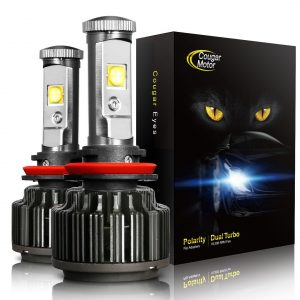 LED is a type of light bulbs where a p–n junction diode emits light when activated. They provide a light energy in the form of photons. LEDs used to be the small ones and available across the visible, ultraviolet, and infrared wavelengths with very high brightness. Nowadays LED lights are the most common type of headlights, and no one halogen or xenon headlamps cannot reach such a level.
LED is a type of light bulbs where a p–n junction diode emits light when activated. They provide a light energy in the form of photons. LEDs used to be the small ones and available across the visible, ultraviolet, and infrared wavelengths with very high brightness. Nowadays LED lights are the most common type of headlights, and no one halogen or xenon headlamps cannot reach such a level.
The principle of work: the LED has to be connected to a direct current source. This current passes from the anode to the cathode through a semiconductor. During the current passing through the semiconductor, elementary particles – photons – come out from it, and this process creates a LED light.
LED light bulbs have such advantages:
- low energy consumption: comparatively to incandescent light bulbs LEDs use much less energy because of its technology;
- longer lifetime: incandescent lights have a filament that glows and produce a light, but suck filament has short lifetime because of the constant temperature difference in a case of on/off;
- fewer environmental concerns: using and utilization of these lamps don’t cause harm to the environment.
Disadvantages:
- temperature dependence: ambient temperature influences on a light power and work capabilities;
- voltage sensitivity: a stable work of them requires a current-regulated supply (usually it`s resistors);
Here were just a few main advantages and disadvantages of LEDs. We like them more than others probably because they are traditional car headlights. It may sound a little bit like conservatory position but who cares.
Halogen Headlights
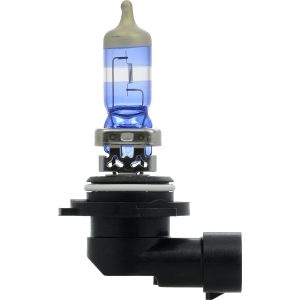 We have chosen the halogen headlights as the second in our comparative list. Many of you will say “what is a halogen?” Well, actually halogens are a group in the periodic table consisting of five chemically related elements. The most spread in the headlights production are iodine and bromine.
We have chosen the halogen headlights as the second in our comparative list. Many of you will say “what is a halogen?” Well, actually halogens are a group in the periodic table consisting of five chemically related elements. The most spread in the headlights production are iodine and bromine.
The principle of work: during the heating of the filament, due to the high temperature, tungsten particles are separated from it are going to settle on the glass. But the space between the filament and the glass surface is filled with halogen, which reacts with these particles and doesn`t allow them to settle on the surface. On the contrary, when the lamp is really glowed, because of the temperature tungsten atoms disintegrate with halogens and settle back onto the filament.
Advantages:
- higher luminous efficacy light: better color rendering and great brightness of the light is provided by the construction of LED;
- a small size: compactness of halogen light bulbs permits their usage in compact optical systems for projectors and illumination;
- long-time life period: the combination of the halogen gas and the filament produces a halogen cycle chemical reaction which increasing bulb`s life.
Disadvantages:
- high temperature: halogen lamps get hotter than regular incandescent lamps.so it can pose fire and burn hazards;
- unintentional ultraviolet: particularly to me UV is unacceptable because of freckles, and that`s why it can cause a disease.
A lot of drivers love halogen light because of its brightness. They say it`s much better than a LED. For me, there`s no difference between them. A really good point about these lamps is that they have a longer lifetime than others.
Xenon Headlight
The 3rd and the last in our list are xenon headlights. Xenon is a colorless, dense, odorless noble gas. It began to become popular in 1990`s and has got a great popularity. Suck headlights have ice white/blue tint and extreme brightness. Xenon light bulbs are filled with xenon gas and when the bulb is switched on the current passes through the gas and it began lights.
The principle of work: a headlamp tube is filled with xenon and 2 electrodes are placed in it, which are not connected by a filament. After connecting the current the electrodes create an electric arc discharge. Due to the fact that this discharge is spreading in the xenon medium, a created light is much brighter than the halogen one.
Advantages:
- extreme brightness: can produce up to 3 to 5 times the brightness of regular halogen bulbs;
- improved durability: xenon headlights have improved durability comparatively to halogen fittings;
- visibility: the quality of light that comes from headlights is much more suited to driving in a range of evening and poorly lit conditions than others.
Disadvantages:
- a bit expensive:
- aggressive brightness: sometimes bad-quality xenon dazzles the counter drivers.
Fans of xenon headlights say that there is nothing better than these headlamps. And especially they don’t like halogen headlights. We don`t know what`s the reason for that confrontation, but its scales are really big.
Conclusion
If we talk about the comparison Xenon vs LED we definitely could say xenon is better. It is more powerful, brighter and has longer work period. Xenon is a more modern and prospect technology for the operation of headlamps, so most likely in the future, it will displace the led bulbs from the automotive components market.
The comparison Xenon vs Halogen seems to be the outer stone of the discussions in today’s world of headlights. There are a lot of articles about this question on the Internet and most of them do not converge in a single opinion, thus dividing into two camps: for xenon or halogen. From our point of view, if you compare these two types of luminescence, the most optimal is the halogen one.
Firstly, for most characteristics it is identical with xenon. Secondly, it is much cheaper to use, install and replace, which is important. Thirdly, the excessive brightness of xenon very often is a huge disadvantage of it, especially when you are on the road in the dark at night and there is a car that has xenon headlights and their light deprives you the vision for a period from 10 to 20 seconds. That`s why in the end we make a conclusion that halogen headlights are the best.

